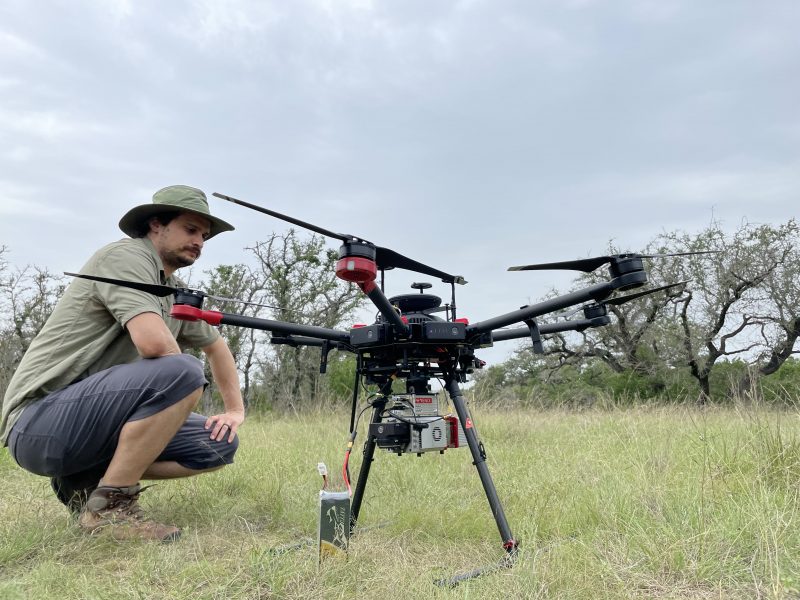Goudge Named NASA Early Career Award Winner
May 13, 2022

The Jackson School of Geosciences’ Timothy Goudge is among the five scientists selected by NASA’s Planetary Science Division to receive an Early Career Award.
The award honors up-and-coming planetary scientists and provides up to $200,000 to support research and professional development over five years. An assistant professor in the Jackson School’s Department of Geological Sciences, Goudge plans to use the funds for a research project that combines planetary science and student outreach.
“I’m really excited about it because it’s just so different from other funding opportunities,” said Goudge. “It has core fundamental science to it, but also outreach and teaching aspects that I’m really keen on as well. It will push our group to do new things in that realm.”
Goudge studies the geological history of Mars and has been involved with prior NASA missions to the red planet, including successfully advocating for Jezero Crater as the landing spot of the Perseverance Rover. He relies on remote sensing data from a variety of sources, from satellites to uncrewed aerial vehicles (UAVs), to conduct research on the geology of Mars and Earth.
His early career project will involve testing out different UAV surveying methods at field sites in Utah and the Texas Gulf Coast, evaluating how they fare at registering different geological features – from stacks of strata to shifting sand dunes.
The work will help determine the best, most cost-effective instruments for surveying geology on other worlds – a critical part of space exploration, said Goudge.
“Sending something to space or to another planet involves lots of risk, it’s very technically challenging but the science reward is really high,” he said. “We want to make sure we are sending the right instruments and that we can answer the questions we want to answer with those instruments.”
Goudge said he selected the field sites with alien landscapes in mind. Utah’s barren rocks are similar to sites on Mars. And Titan, a moon of Saturn that NASA plans to visit in the 2030s, is thought to have sandy dunes similar to those along the Gulf.
Assisting Goudge on the Gulf Coast leg of the research will be students in the Jackson School’s GeoFORCE program, which teaches Texas high school students from underserved areas about the geosciences through field trips. Students will learn how to conduct field work and UAV surveys, then how to process and analyze the resulting data for studying geology.
“GeoFORCE is so excited to partner with Dr. Goudge on this project,” said GeoFORCE Director Leah Turner. “He is an incredible researcher that sets the standard for allyship in the geosciences. Our students will learn so much from this experience!”
In the past, Goudge has used data collected by satellites and UAV surveys to create models of field sites. This includes a virtual map of the Jackson School’s White Family Outdoor Learning Center to a 3D printed replica of Jezero Crater.
Goudge said he plans to make similar 3D printed models of the research sites, along with sites from Mars, and share these scaled-down slices of the field during UT Austin outreach events, enabling students to touch the topography on their home planet and compare it to another world.
The full list of NASA early career award winners and their research abstracts is available online. Goudge and the rest of the winners will be honored during a plenary session at the Lunar and Planetary Science Conference in spring 2023.
For more information, contact: Anton Caputo, Jackson School of Geosciences, 512-232-9623; Monica Kortsha, Jackson School of Geosciences, 512-471-2241.
